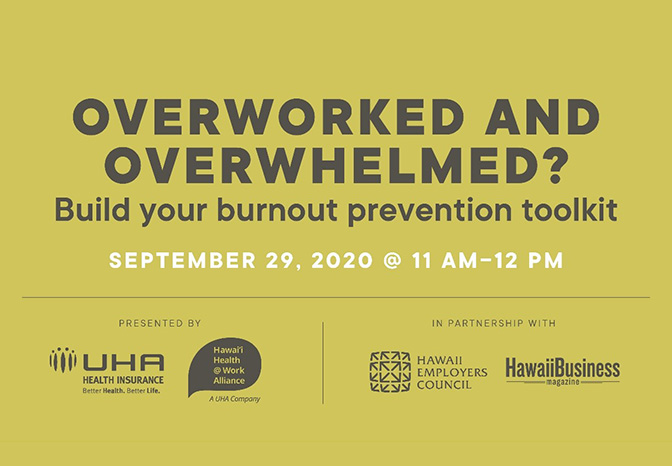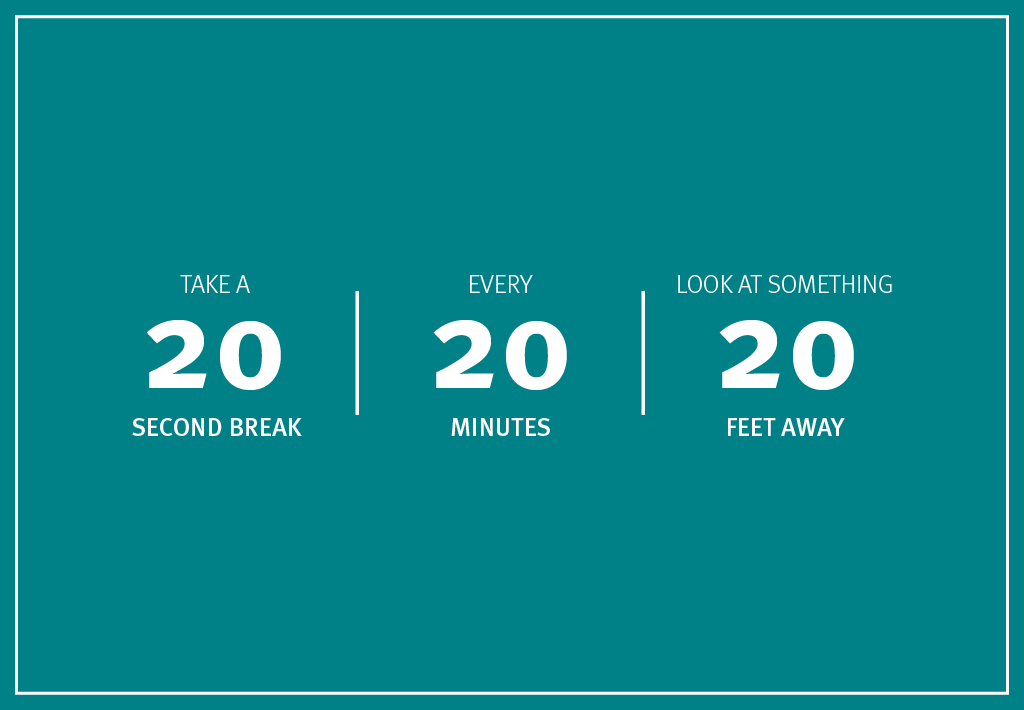
ARTICLE RECAP: Navigating Periods of Burnout and Disorder
The state of exhaustion caused by excessive and prolonged stress — otherwise known as burnout — is nothing new, but the COVID-19 pandemic has brought mental wellness to the forefront. Now, more than ever, we are cognizant of the chronic stressors that have taken over our everyday lives. Though burnout can wreak havoc if not addressed, it can be managed with the right tools and life skills.
On September 29, UHA Health Insurance and Hawai‘i Health at Work Alliance in partnership with Hawaii Employers Council and Hawaii Business hosted a webinar that addressed what it’s like to be overworked and overwhelmed, and keynote speaker Brad Stulberg offered a burnout prevention toolkit. A national researcher, writer, and speaker, Stulberg coaches executives, entrepreneurs, and other leaders on topics such as mental toughness, resilience, and managing uncertainty, to name a few. He has written books about burnout and leading a balanced life, and has had his work published in The New York Times, Wired, New York Magazine, and Forbes. The webinar also provided insight from Hawai‘i Health at Work Alliance Workplace Wellness Consultant Michael Story, and Hawaii Employers Council Senior HR Consultant, Jessica Morikone.
Stulberg recommends the following eight principles to navigate burnout and disorder:
- Stop Resisting What is Happening
You will always be surrounded by issues you can’t control; whether it’s the coronavirus pandemic or social and political unrest, it’s important to recognize and accept what you cannot control. - Focus on What You Can Control
There are certain elements in life you just can’t stop — such as aging — but you can adjust your actions to better adapt to those changes. Stulberg offered the example of tennis star Roger Federer, who pivoted from being a baseline player to a net player. By adjusting his methods to better accommodate his abilities as he aged, he was able to continue dominating the sport long past his prime. - Nail Daily Habits
Moving your body regularly, getting adequate sleep, and eating nutritious foods every day will support underlying physiological and psychological strength. Though skipping these habits to get more work done may be beneficial in the short term, both you and your organization will suffer in the long run if you don’t nail these three daily habits. - Stick to Routines
Routines offer predictability and eliminate the need to muster the motivation to get things done. They provide a solid base when everything else around you may seem unstable; and once you get going, you’ll feel better! - Stay Connected
Numerous studies demonstrate the benefits of community. Though shutting down and isolating may be a natural urge during a period of disorder, it is imperative to resist this compulsion. It’s highly likely that many other people are feeling the same way — and connecting will make everyone stronger. Get as close to an in-person connection as possible: in-person connection > video call > phone call > text message > email. - Think Adaptation Instead of Change
When the world around you changes drastically, it doesn’t mean you should, too. Throwing all of your values by the wayside will completely transform who you are as a person. Determine what your core values are — stay true to those firm beliefs, then be flexible with everything else. Stulberg says modern media companies are a prime example of why adapting is imperative. Publications such as The New York Times or the Wall Street Journal didn’t completely change their approach in the digital age — rather than eliminate print editions, they adapted by also incorporating web stories, podcasts, and other online offerings. - Respond Not React
For this principle, Stulberg quotes Viktor E. Frankl, an Austrian neurologist and psychiatrist, and Holocaust survivor: “Between stimulus and response there is a space. In that space is our power to choose our response. In our response lies growth and freedom.” To practice response, Stulberg suggests considering the four Ps before reacting to a situation: pause, process, plan, then proceed. Try to argue both sides of an issue in your mind and think about what advice you would offer a friend if they were in your situation. - Show Up, Get Through, Worry About Making meaning on the Other Side
Stulberg says that pressuring yourself to be positive is not helpful. Though there is a natural tendency to want an immediate positive outcome, if a particular situation isn’t garnering that particular outcome, it’s best not to force it. Eventually, your brain will make meaning of it all on the other side.
For additional information, contact Senior Workplace Wellness Advisor, Mike Story, at 808-522-5572 or [email protected].
For more from Brad Stulberg, visit bradstulberg.com, thegrowtheq.com, or on his social channels with the handle @bstulberg.
Watch the recording of the full webinar for more insights during the Q&A portion here.



